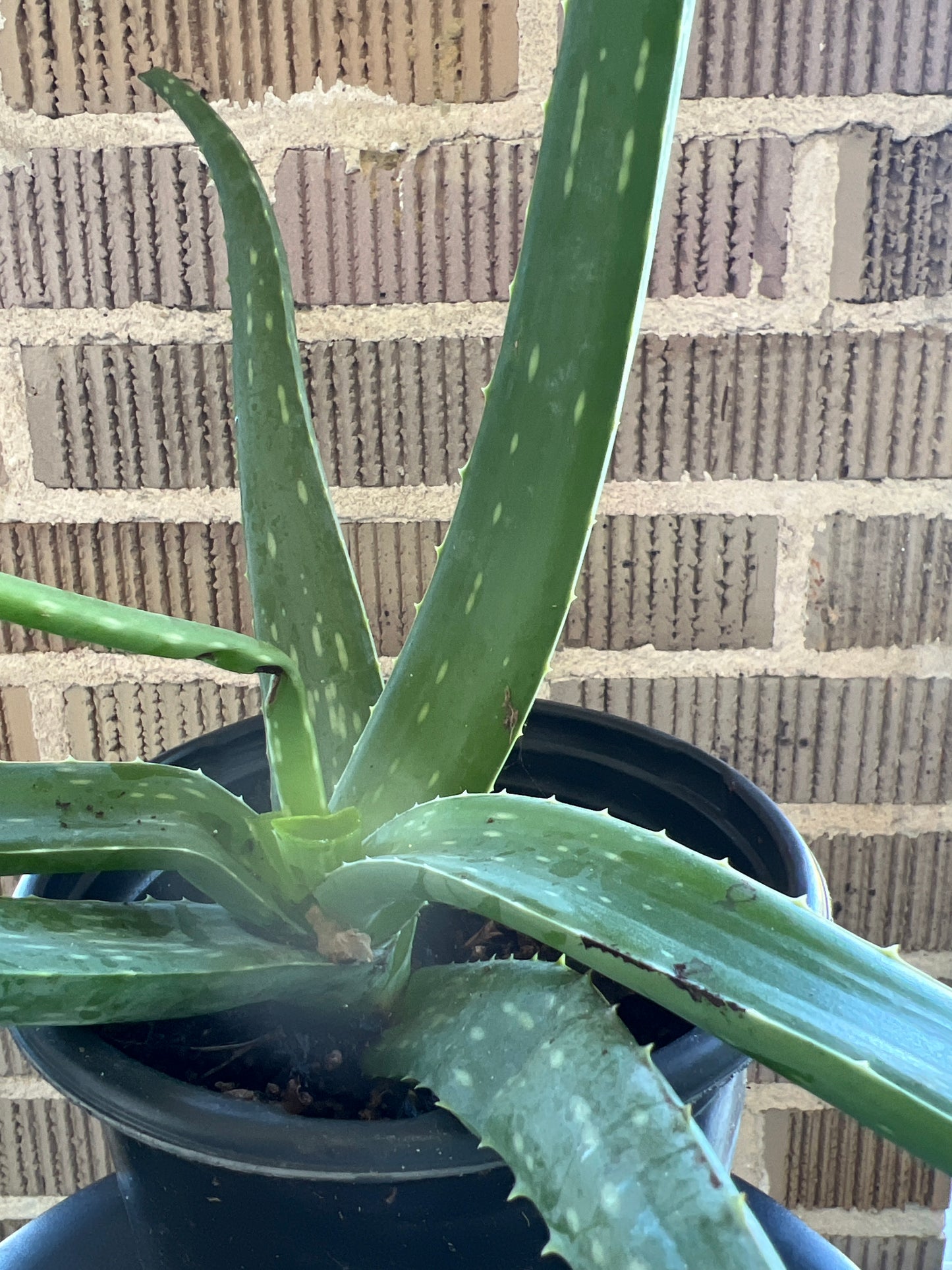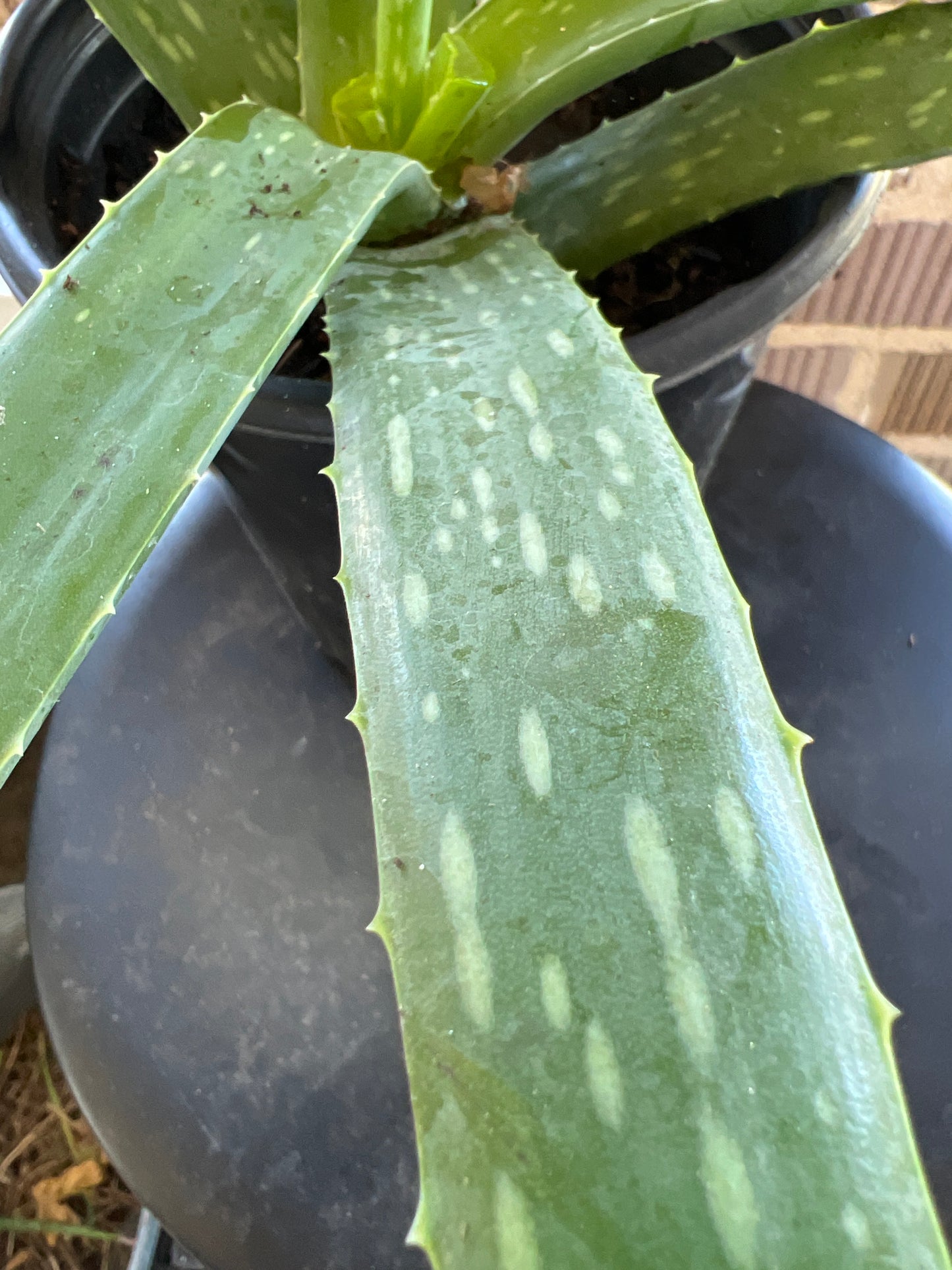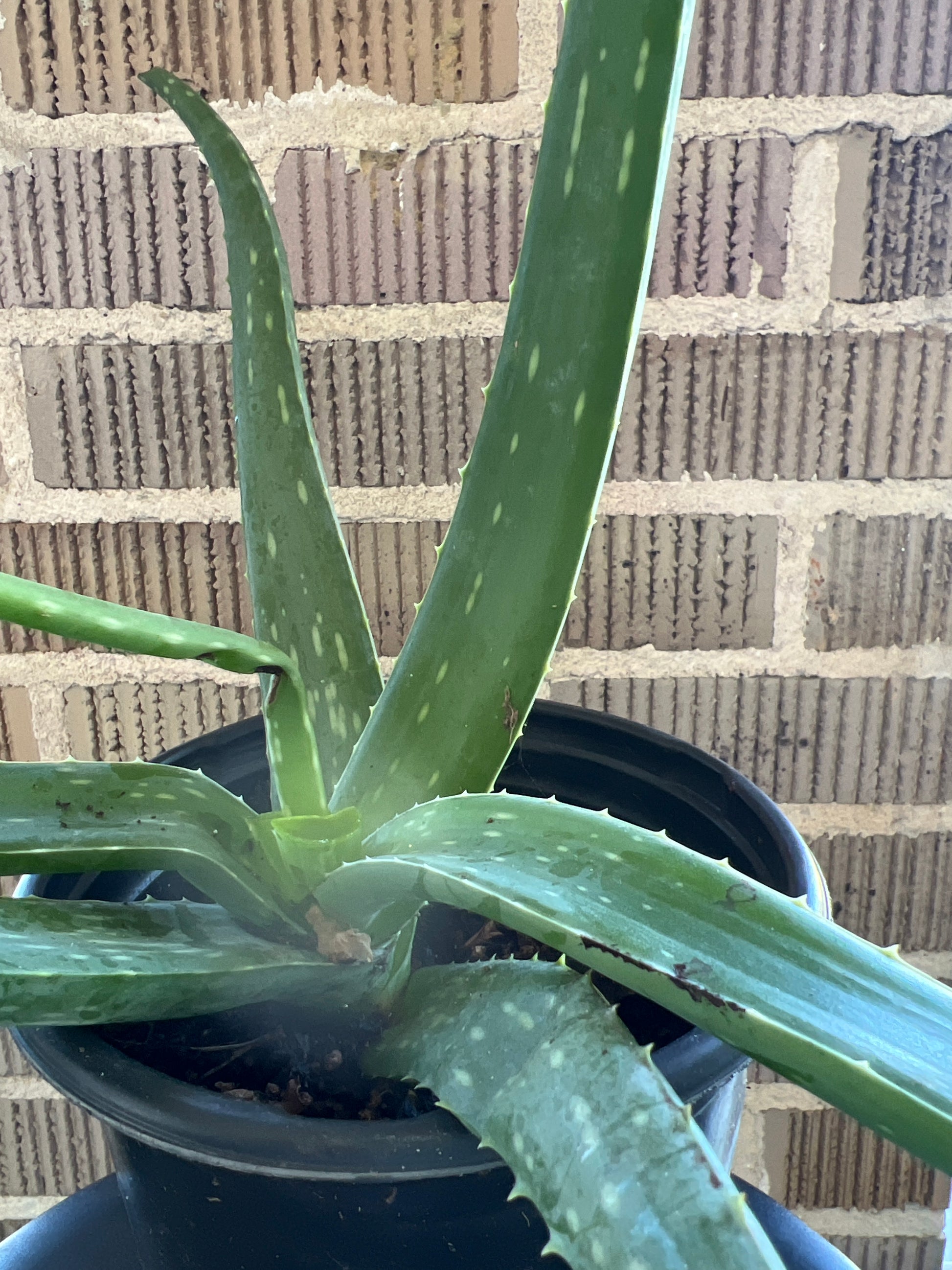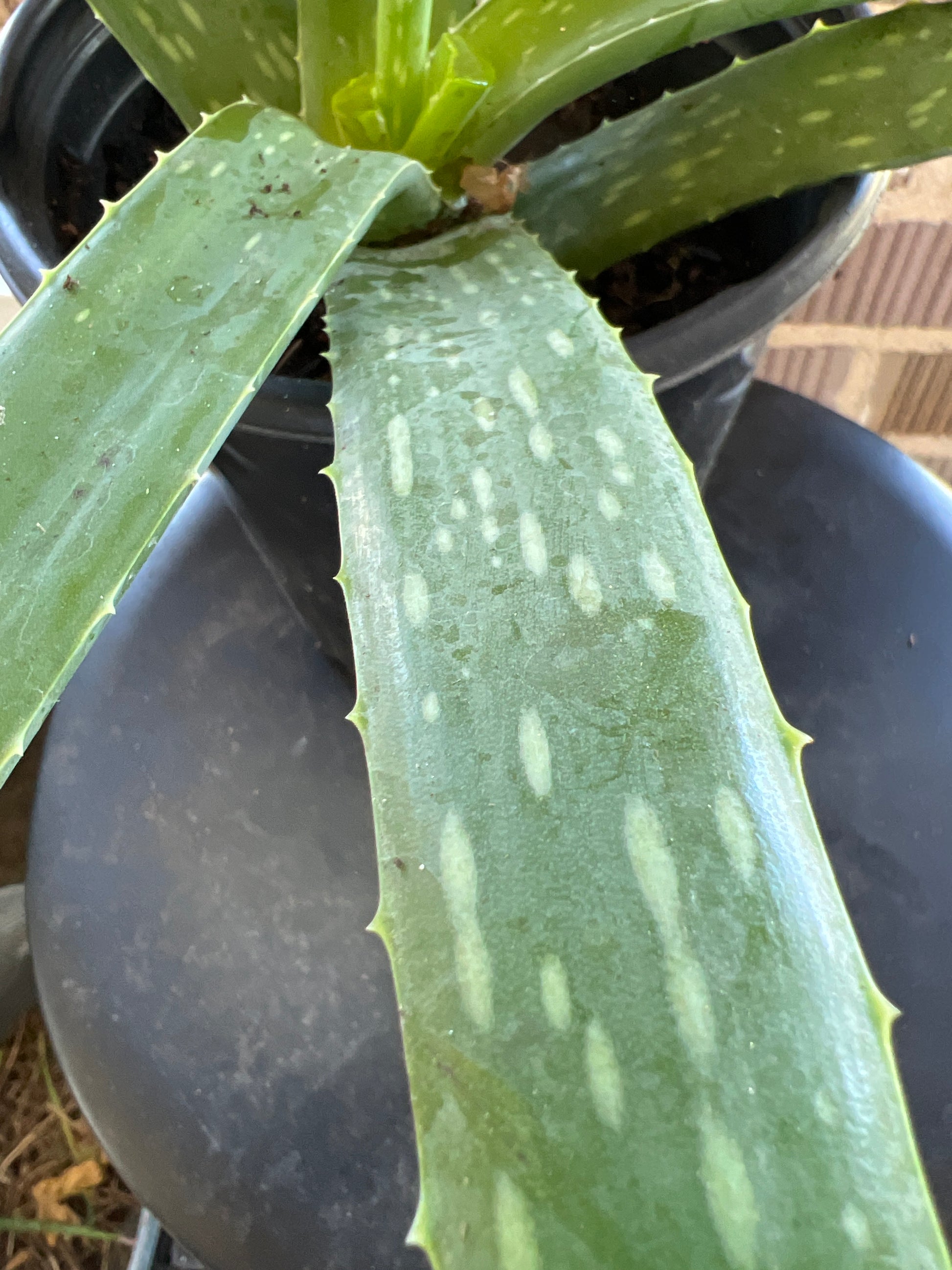Aloe Maculata
Aloe Maculata
Aloe maculata, commonly known as Soap Aloe, is a hardy and attractive succulent well-suited to a variety of conditions.
Growing Conditions
Light - Full Sun to Partial Shade: Prefers full sun but can tolerate partial shade. Aim for at least 6 hours of direct sunlight daily for optimal growth and flowering.
Temperature - Ideal Range: 60-85°F (16-29°C). Aloe maculata can tolerate higher temperatures but should be protected from frost. If grown in cooler climates, bring indoors or cover during frost periods.
Humidity - Low to Moderate: Adapted to arid conditions, so it does not require high humidity. Ensure good air circulation to prevent fungal issues.
Soil - Well-Draining Soil: Use a cactus or succulent potting mix. Alternatively, mix regular potting soil with sand or perlite to enhance drainage.
Watering - Allow the soil to dry out completely between waterings. Water deeply but infrequently, approximately every 2-3 weeks. Reduce watering in winter when the plant is dormant.
Fertilization - Light Feeding: Fertilize sparingly with a balanced, water-soluble fertilizer diluted to half strength once in the spring and again in mid-summer.
Potting and Repotting
Repotting: Repot every 2-3 years or when the plant outgrows its container. Use pots with drainage holes to prevent waterlogging.
Pruning
Minimal Pruning: Remove dead or damaged leaves at the base to maintain the plant’s appearance and health.
Pests and Problems
Common Pests: Watch for aphids, mealybugs, and scale insects. Treat infestations with insecticidal soap or neem oil.
Diseases: Overwatering can cause root rot. Ensure well-draining soil and avoid overwatering. Keep leaves dry to prevent fungal issues.
Growing Zones
Hardiness Zones: Suitable for USDA hardiness zones 8-11. In cooler zones, grow in containers and bring indoors during winter.
Uses
Medicinal Uses: The sap of Aloe maculata is traditionally used for its soothing properties on skin irritations, minor burns, and insect bites. However, it’s less commonly used than Aloe vera for medicinal purposes.
Cosmetic Uses: The gel can be used in homemade skincare products like lotions and masks.
Ornamental: Ideal for xeriscaping (low-water gardens) and rock gardens due to its drought tolerance and attractive appearance. The plant’s striking flowers attract hummingbirds and other pollinators.
Soap Making: The sap has historically been used as a soap substitute, which is how it earned the name "Soap Aloe."
Additional Tips
Mulching: In outdoor beds, apply a layer of gravel or sand around the base of the plant to improve drainage and reduce moisture around the roots.
Container Gardening: Ensure the pot has adequate drainage holes and use a well-draining soil mix. Containers can be moved indoors during cold weather.
---SHIPPING NOTICE PLEASE READ BEFORE PURCHASING LIVE PLANTS!---
We WILL NOT refund the purchase of or the shipping cost of live plants purchased with the intent to be shipped to states that do not authorize importing live plants or to states with restrictions! Purchases to these states will be held for 30 days for pick-up at our Slidell, Louisiana store and the shipping cost associated with these purchases will be held for the care of the plant while waiting to be picked up. All sales are final. If the plant(s) purchased are not picked up within 30 days from the date of order, these items will be returned to our sales inventory and you WILL NOT be refunded. Thank you for understanding these policies.
Due to regulations, certain states have restrictions on importing plants. Please review the list below to ensure you're not attempting to order any restricted plants in your area.
**Important Note:** We do not ship any plants outside the U.S.
State-Specific Restrictions - We ARE NOT responsible for any plant(s) that are not listed in these restrictions. Purchaser bears all responsibility for making sure the plant(s) they desire to purchase are not banned from being imported to the shipping state:
Arizona: Juglans spp.
California: Castanea spp., Juglans spp., Pinus spp., Quercus spp.
Colorado: Some counties restrict Prunus spp. Please verify your local county regulations.
Florida: Castanea spp., Cornus spp., Quercus spp., Cornus mas
Georgia: Vaccinium spp.
Hawaii: Pinus spp.
Idaho: Humulus lupulus, Mentha spp., Vitis spp.
Indiana: Fragraria spp., Rosa spp.
Kansas: Juglans spp.
Michigan: Abies spp., Vaccinium spp.
Montana: Pinus spp.
Nevada: Allium spp.
Mentha spp.
New Jersey: Rosa spp.
New York: Vitis spp.
Oregon: Allium spp., Castanea spp., Corylus spp., Humulus lupulus, Quercus spp., Sambucus nigra, Ulmus spp., Vaccinium spp., Vitis spp.
Texas: Juglans spp.
Washington: Allium spp., Castanea spp., Corylus spp., Humulus lupulus, Vaccinium spp., Vitis spp.
Wisconsin: Abies spp., Pinus spp., Picea spp., Mentha spp.
Additionally, we cannot ship plants in soil medium to the following states: AK, AL, AR, AZ, CA, HI, ID, KS, MS, MT, ND, NM, NV, OK, OR, SD, TX, UT, WA.
Couldn't load pickup availability




